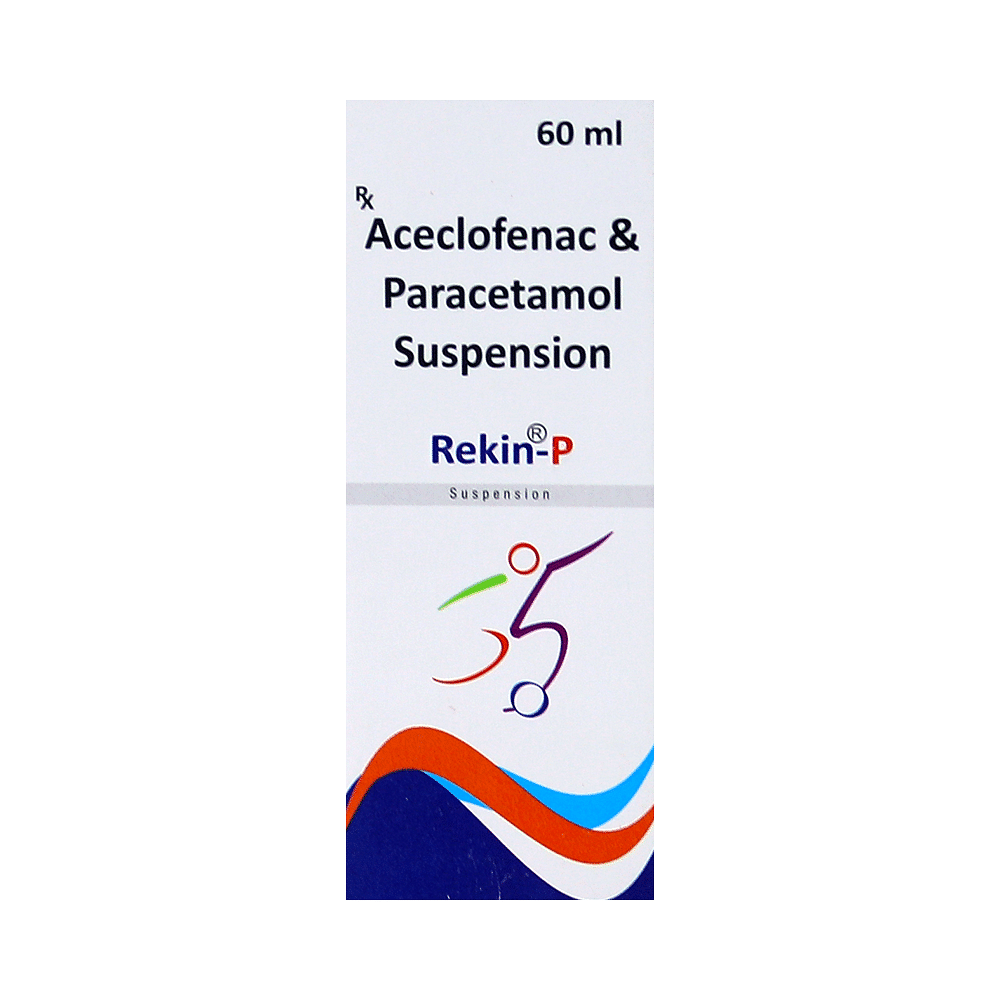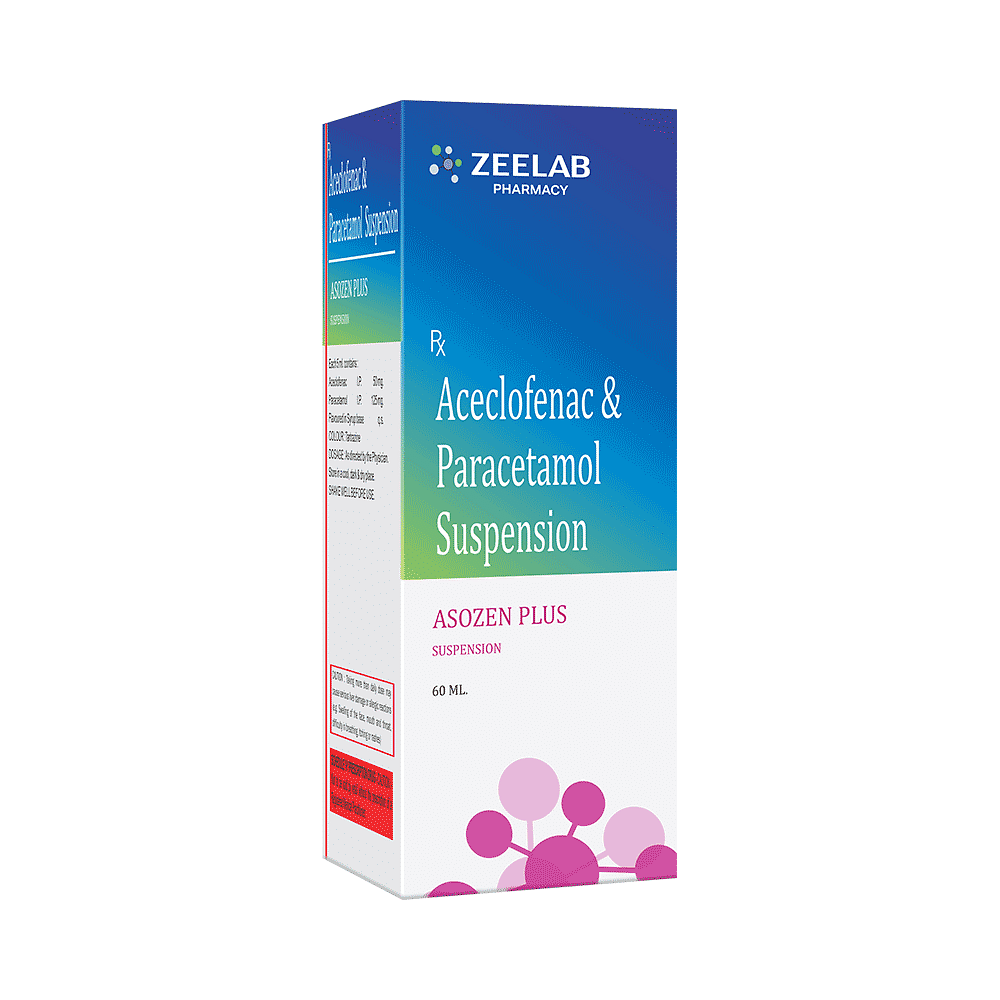
Rompy Oral Suspension
Manufacturer
Therapia Sanjeevani
Salt Composition
Aceclofenac (50mg/5ml) + Paracetamol (125mg/5ml)
Key Information
Short Description
Rompy Oral Suspension helps lower body temperature (fever) and reduce pain and inflammation (redness and swelling) both in infants and children.
Dosage Form
Oral Suspension
Introduction
Rompy Oral Suspension is a medication used to help lower body temperature (fever) and reduce pain and inflammation (redness and swelling) in infants and children. It is available in an oral suspension form and is typically given after food to avoid abdominal discomfort. It is important to follow the recommended dosage and to consult with a doctor if you have any concerns or if your child does not show improvement.
Directions for Use
Give this medicine after food to avoid abdominal discomfort in your child. Maintain a log of your child's temperature. If you do not see any improvement, contact your child's doctor for advice.
How it works
Rompy Oral Suspension comprises two active ingredients: Aceclofenac and Paracetamol. These medicines work by blocking the action of chemical messengers responsible for pain, fever, and inflammation (redness and swelling).
Quick Tips
Give plenty of fluids to your child to ensure proper body hydration (water-levels) Give your child a balanced diet Encourage your child to have optimum sleep since sick children get tired soon and getting plenty of rest helps them recover faster. Stop the medicine and consult your child's doctor in case your child exhibits allergic rash or stomach pain soon after taking this medicine.
Related Medicines

Acevir-P Oral Suspension

Dolbrex-Kid Oral Suspension

Aece-P Oral Suspension

Rekin-P Oral Suspension

Veto A Oral Suspension

Arragesic-P Oral Suspension

Acecdoz Kid Oral Suspension

Fenavin Oral Suspension

Refen P Oral Suspension

Asozen-Plus Oral Suspension
Frequently asked questions
Can I increase or decrease the dose of Rompy Oral Suspension for my child based on the severity of illness?
No, it is not recommended to alter the dosage without consulting a doctor. Increasing the dose without proper judgment may lead to toxicity, and decreasing it may cause recurrence of symptoms. Always speak to your child's doctor if you feel a change in dosage may be needed.
How much Rompy Oral Suspension should I give my child?
The dosage will be determined by your doctor based on your child's condition and weight. It is essential to follow the prescribed dosing schedule for safe and complete recovery.
How should Rompy Oral Suspension be stored?
Rompy Oral Suspension should be kept at room temperature, in a dry place, away from direct heat or sunlight. All medicines should be kept out of reach and sight of children to avoid accidental intake.
Can all children receive the same dose of Rompy Oral Suspension?
No, Rompy Oral Suspension dosage cannot be given universally. The doctor decides on the appropriate dosage based on the child's age and body weight. The dosage will even change for your child as they grow older. Never give any dose without consulting a doctor first. Follow the doctor’s instructions carefully to maximize benefits.
When will my child feel better?
You may need to administer Rompy Oral Suspension to your child for a few days to weeks, depending on the severity of the infection. Continue following the prescribed dose and frequency advised by the doctor, and you'll see relief from pain or fever. However, if your child continues to feel unwell even after completing the full course of medicine, please consult your doctor as soon as possible.
Are there any serious side effects associated with this medication for my child?
Although Rompy Oral Suspension is generally well-tolerated by children, if you notice persistent vomiting, body swelling, decreased urine frequency, or a severe allergic reaction, seek immediate medical attention.
Are there any specific contraindications associated with the use of Rompy Oral Suspension?
Rompy Oral Suspension is harmful for patients with known allergies to any components or excipients in this medicine or those with a history of allergy to other painkillers (NSAIDs). It should be avoided in patients with a history of stomach ulcers, active, recurrent stomach ulcer/bleeding. Additionally, avoid it for patients with a history of heart failure, high blood pressure, and liver or kidney disease.


